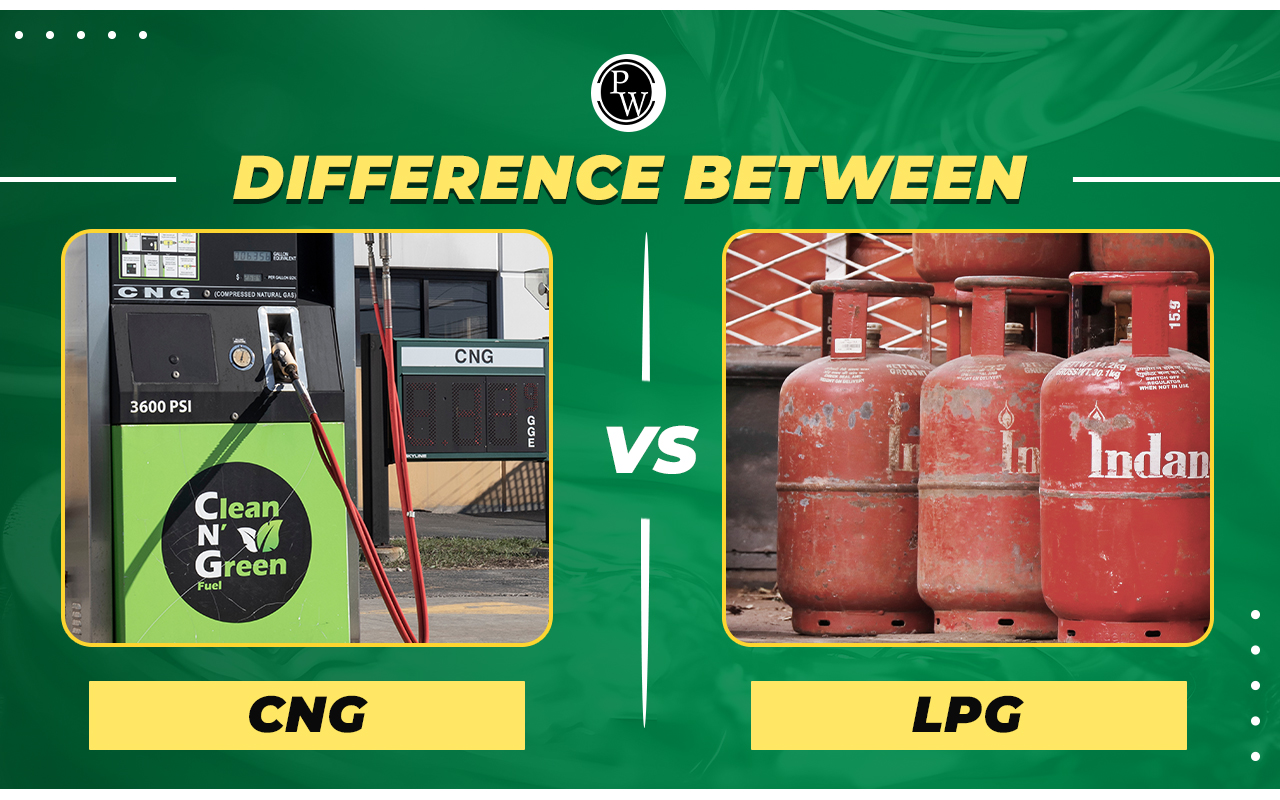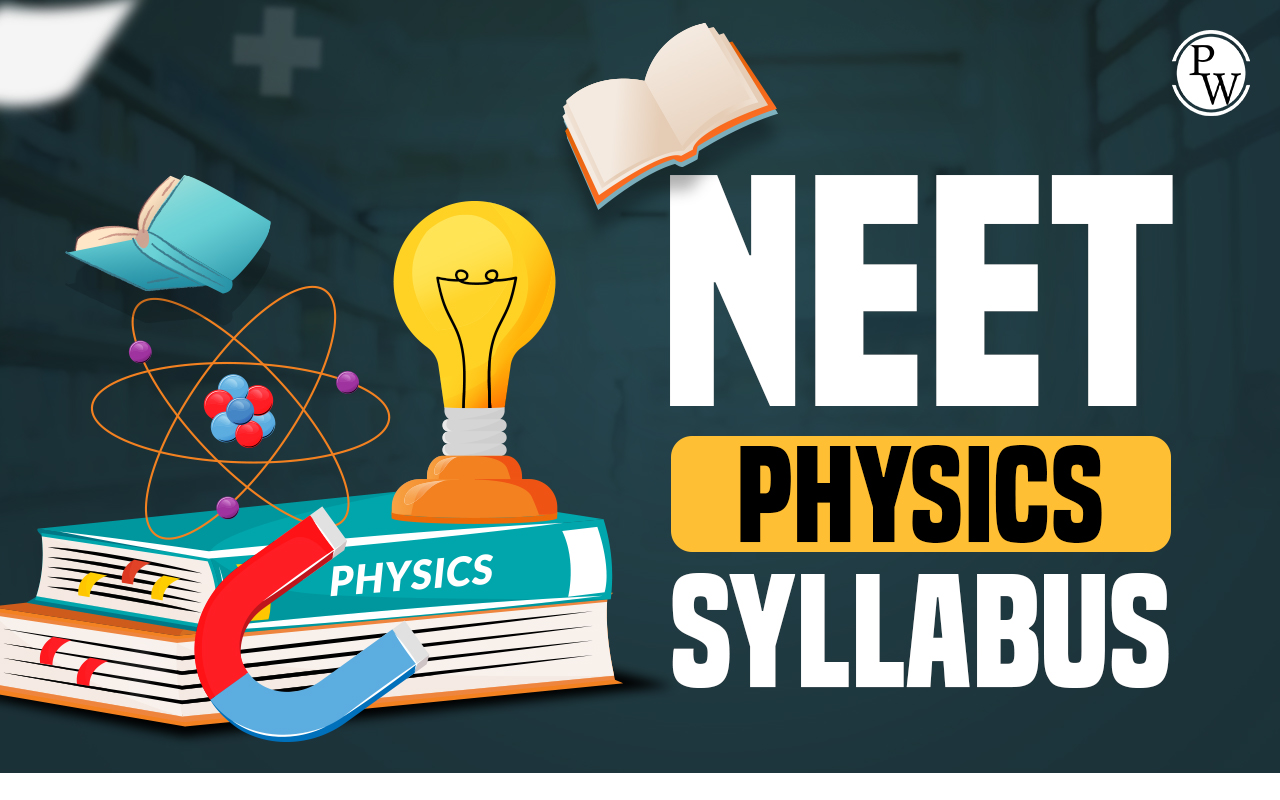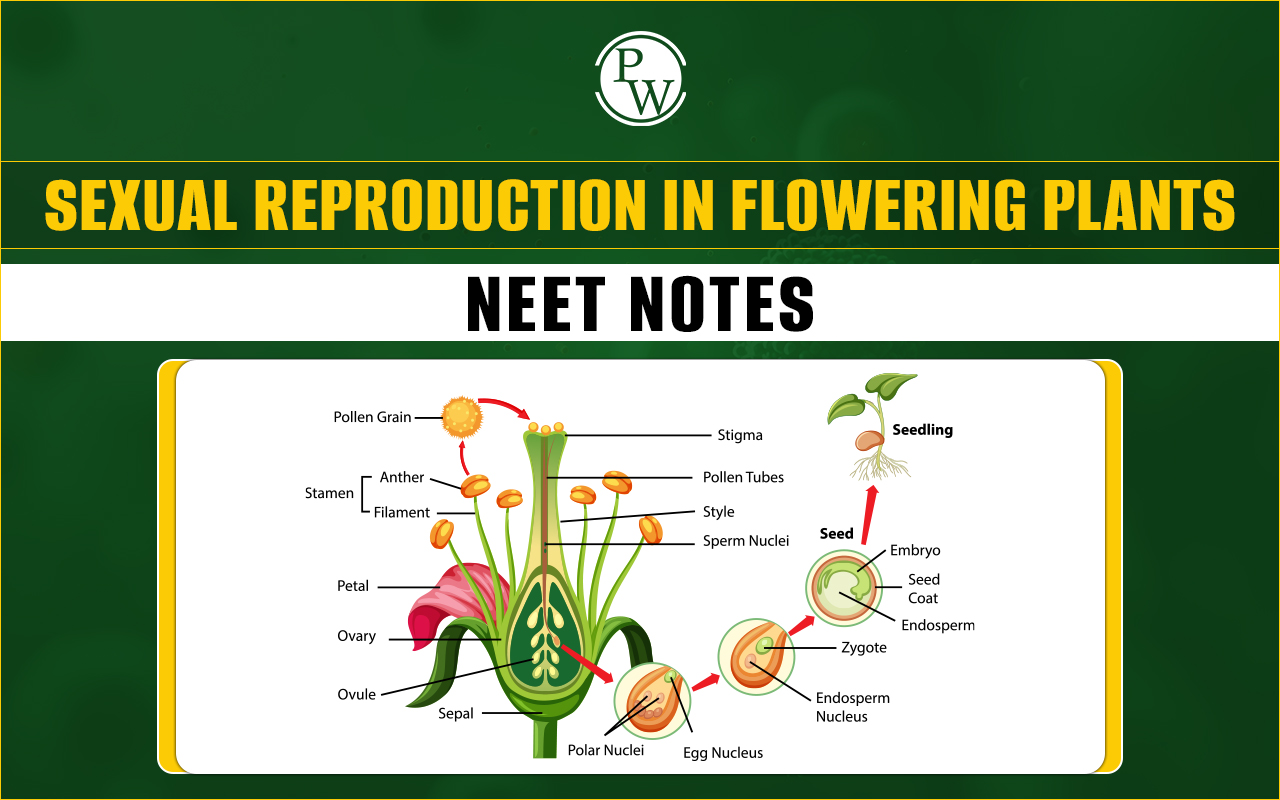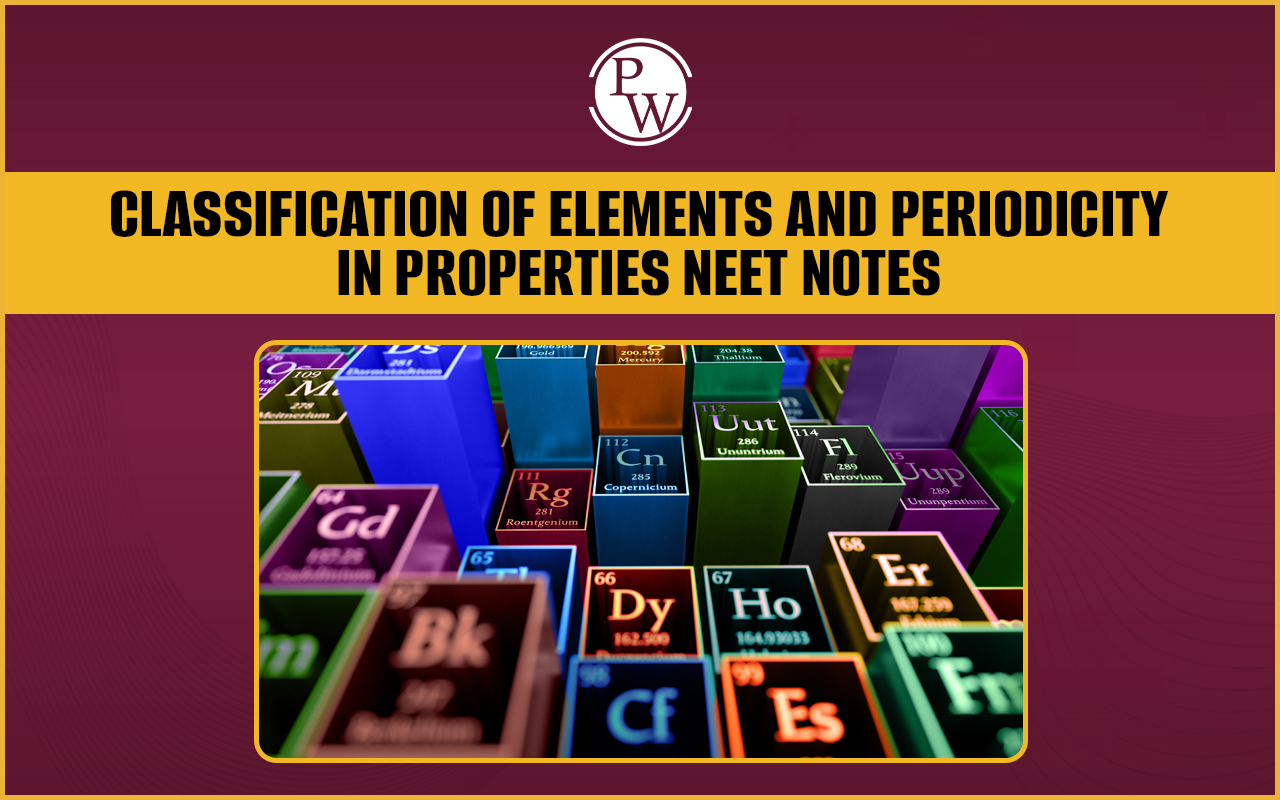
Difference Between CNG and LPG: Natural gases are formed deep inside the Earth over hundreds of years. We can bring them to the surface by pumping. Once extracted, they go through a cleaning process to remove impurities.
| NEET Chemistry Syllabus | NEET Chemistry Important Questions with Answers |
| NEET Chemistry Chapter wise Weightage | NEET Chemistry MCQs |
| NEET Chemistry Notes | NEET Chemistry Formulas |
Difference Between CNG and LPG Overview
Compressed Natural Gas (CNG) and Liquified Petroleum Gas (LPG) are alternative fuels that differ in composition, storage, and applications. CNG mainly has methane and is stored under high pressure as a gas, making it suitable for vehicular use. It is recognized for its lower carbon emissions and is commonly utilized in public transportation and private vehicles. On the other hand, LPG includes propane and butane, stored as a liquid under moderate pressure. LPG finds applications in residential cooking, heating, and as a vehicle fuel. While both CNG and LPG serve as cleaner alternatives to traditional fuels, their storage methods and chemical compositions vary. CNG requires high-pressure storage tanks, limiting its use to vehicles with specially designed systems. LPG, stored in liquid form, is more versatile and applicable in various settings, including households and automotive use. Understanding these distinctions is crucial for choosing the most suitable alternative fuel based on specific requirements and applications.
Difference Between CNG and LPG
Understanding these differences can help individuals choose the appropriate fuel for their vehicles or household needs based on energy efficiency, infrastructure availability, and combustion characteristics. But here this topic is crucially important from the NEET exam point of view, so every candidate must check it out.
| Difference Between CNG and LPG | ||
|---|---|---|
| Parameters | CNG (Compressed Natural Gas) | LPG (Liquified Petroleum Gas) |
| Composition | Mostly methane gas | A mix of propane and butane gases |
| State | Gaseous at normal temperature | Liquid at normal temperature |
| Density | Lower density compared to LPG | Higher density compared to CNG |
| Storage | Stored in high-pressure cylinders | Stored in low-pressure cylinders |
| Energy Content | Lower energy content per cubic meter | Higher energy content per cubic meter |
| Combustion Characteristics | Cleaner combustion produces fewer emissions | Complete combustion produces more emissions compared to CNG |
| Cost | Generally lower cost compared to LPG | Cost varies, may be higher than CNG |
| Infrastructure | Limited availability of CNG stations | Widespread availability of LPG |
| Vehicle Compatibility | Requires specific CNG-compatible vehicles | Can be used in both LPG and dual-fuel vehicles |
CNG Definition
CNG, or Compressed Natural Gas, is a type of natural gas that is compressed to reduce its volume for storage and transportation. It primarily consists of methane and is used as a fuel for vehicles and in some industrial applications. CNG is considered a cleaner alternative to traditional fuels, as it produces fewer emissions during combustion. Example: A car that runs on CNG has a specially designed CNG tank, and the vehicle's engine is adapted to burn compressed natural gas. Public transportation fleets and personal vehicles can be converted to use CNG as a more environmentally friendly fuel source.
LPG Definition
LPG, or Liquified Petroleum Gas, is a flammable hydrocarbon gas that includes propane and butane. It is stored in a liquid state under moderate pressure, making it easier to transport and store. LPG is commonly used for heating, cooking, and as a fuel for vehicles. It is versatile and widely available for both residential and commercial use. Example: Many households use LPG for cooking purposes through gas stoves. Additionally, some vehicles are designed to run on LPG, providing an alternative fuel option that is cleaner compared to traditional gasoline.













